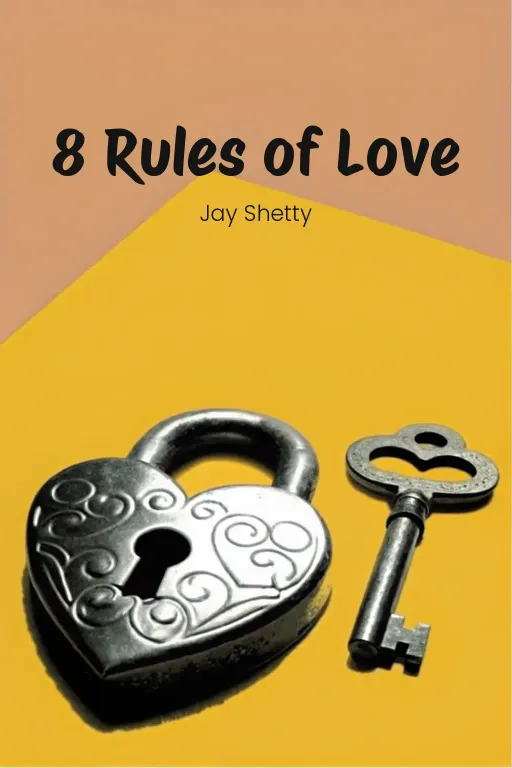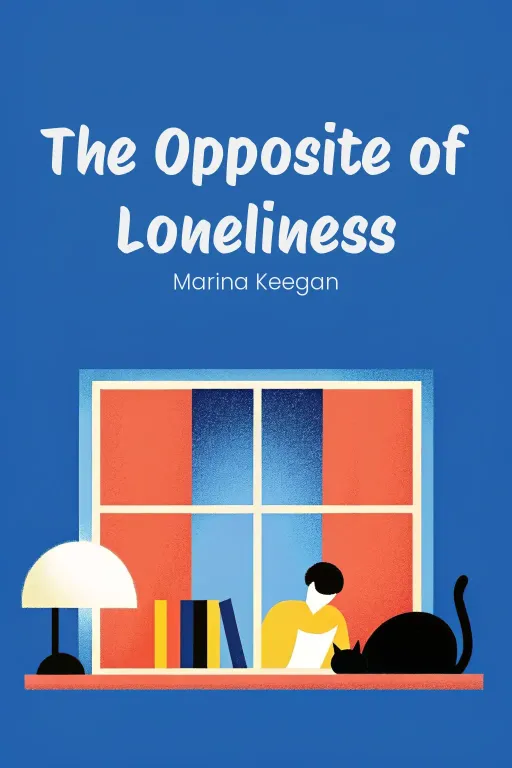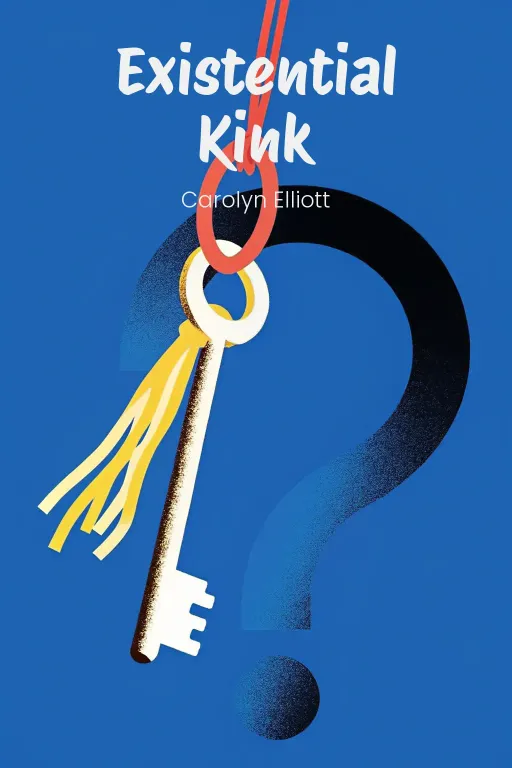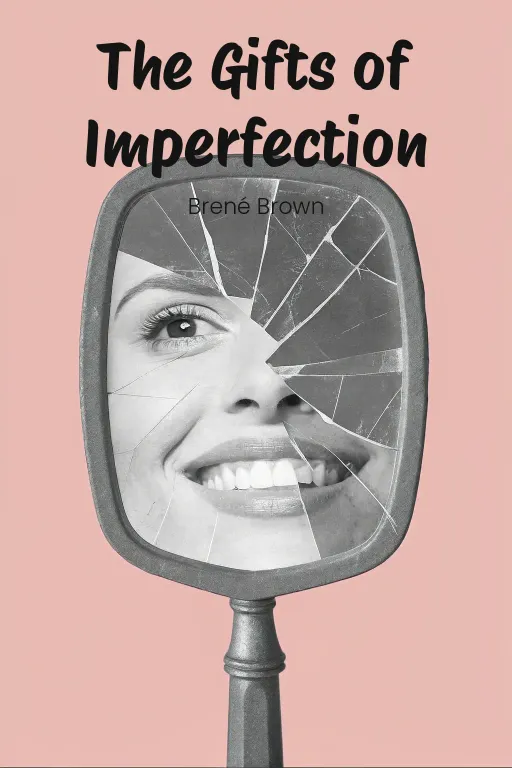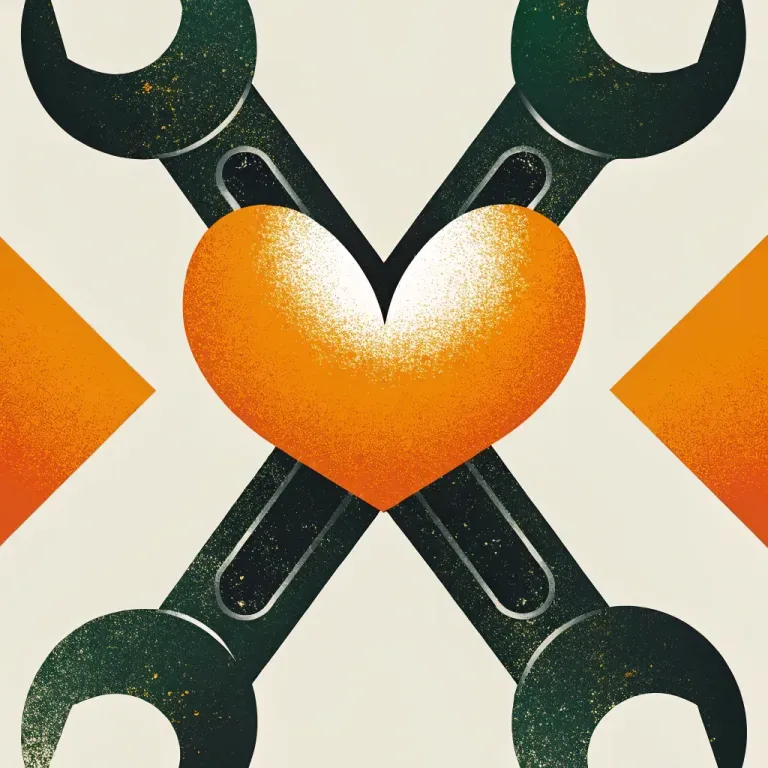
Fix Your Marriage: Little Things MATTER!
Podcast by The Mindful Minute with Autumn and Rachel
A Hopeful Approach to Saving Relationships
Introduction
Part 1
Autumn: Hey everyone, welcome to the show! Today we're tackling a big one: why do seemingly good marriages—you know, with people who genuinely care about each other—sometimes just... fall apart? Rachel: Yeah, it's a head-scratcher, isn't it? Is it always about obvious stuff like, I don't know, forgetting anniversaries? Or is there more to it? Autumn: Definitely more. We're talking about emotional disconnection, those little cracks that appear over time and undermine everything. And we're going to be drawing some insights from Matthew Fray's book, “This Is How Your Marriage Ends”. Rachel: Okay, intriguing title. So, he figured out how marriages end by... ending his own? That’s the qualification? Autumn: Precisely. Fray learned the hard way—through his divorce—that it’s less about huge betrayals and more about the daily grind of miscommunication, neglect, and feeling constantly invalidated. The book's basically his roadmap for spotting and fixing those issues before they become irreparable. Rachel: Right, so we're diving into the emotional trenches today. What’s the plan of attack? Autumn: First, we're going to get to the bottom of what causes emotional disconnection—those sneaky habits that kill intimacy without you even realizing it. Then, we'll talk about how to rebuild trust and create a safe emotional space. And finally, we're going to question some traditional roles and think about how personal growth can revitalize a relationship. Rachel: So, relationship rehab? Can we blame external factors at any point, like, you know, in-laws? Autumn: <Laughs> If by "external factors" you mean outdated ideas about who should do what, or avoiding tough conversations, then absolutely. Get ready, Rachel. This is going to take work. Rachel: I'm already feeling the burn, but alright, let’s do this.
Emotional Needs and Invalidation
Part 2
Autumn: Okay, let's dive right into the heart of the matter: emotional needs and invalidation. This is really the foundation, right? It helps us understand why emotional pain and disconnection creep into relationships and how they escalate without us even noticing. Rachel: So, by "foundation," we're talking about how saying things like "You're overreacting" can apparently be as damaging as, I don't know, setting the kitchen on fire? Autumn: Well, perhaps not quite that dramatic, Rachel! But you're right, emotional invalidation is a huge factor in relational breakdowns. Basically, it happens when one partner dismisses, downplays, or just plain ignores the other's feelings. Over time, this can lead to deep mistrust, resentment, and a real sense of isolation. Rachel: Okay, so instead of one massive blow-up, it’s more like a constant, subtle undermining that chips away at the foundation. Autumn: Exactly! Matthew Fray calls these things the "10,000 paper cuts" of relationships. Ultimately, he says it’s rarely the big betrayals that destroy love. Instead it’s often repeated small acts of neglect or dismissiveness that will turn into insurmountable chasms. Rachel: Alright, alright, I'm with you. So, what does this "emotional invalidation" actually look like in a real-life context though? Autumn: Well, Fray identifies three major culprits, he calls this the “Invalidation Triple Threat.” First, there's contradicting experiences, where you basically undermine your partner’s perspective. Say your partner tells you they felt hurt by something, and you respond with, "That's not how it happened" or "You're just misremembering." Rachel: Ouch. I can totally see why that’s a problem. Sounds like you're telling them, in effect, "Your feelings are irrelevant, because I have the one true version of events." Autumn: Precisely. It's invalidating because you're prioritizing your interpretation over their emotional experience. You know, the trick to all this is, it's not really about whether you remember the event the same way – it's about the emotional impact it had on them. Rachel: Okay, so the rule of thumb is: "She felt hurt, end of story." No need for a rebuttal, got it. Autumn: Exactly! Now onto the second form: dismissing feelings. This one's a classic. You might hear something like, "You're overreacting," or "It's not that big a deal." What happens then? Well, the other person feels belittled or even foolish for having emotions. Rachel: And I'm guessing, eventually, they just stop sharing how they feel altogether? Autumn: Exactly. Emotional safety takes a major hit. If your feelings are constantly minimized, why even bother expressing them? Rachel: Alright, but let's play devil's advocate here, Autumn. What if it really isn't that big of a deal? What if someone is genuinely blowing things out of proportion? Autumn: Right but, as Fray points out, it's not about whether you think it’s a big deal. No. It's about validating their emotions in that moment. You don't have to agree with them, but you do need to acknowledge and respect their perspective. Rachel: Okay, so instead of saying, "You're overreacting over socks on the floor," you could say, "I see that the socks are bothering you. Let's figure out a solution." Much better! Autumn: Exactly – validation without judgment! Now, the final piece of the Invalidation Triple Threat: defending intentions. This is when someone, instead of addressing the hurt they've caused, goes on the defensive. You know, saying things like, "I didn't mean it that way," or "You misunderstood me." Rachel: That one definitely hits close to home! I think a lot of people default to that, right? The "I meant well, so why are we even having this conversation?" defense? Autumn: Totally! But this is where Fray's insight really shines: defending intentions shifts the focus away from your partner's pain and onto your reasons. Even if you had the purest intentions in the world, the impact of your actions still matters. Rachel: So you’re essentially saying, "Your feelings are secondary because I meant well"? Autumn: Precisely! This is a recipe for the real issue to go unaddressed. Instead, try something like, "I didn't realize this hurt you. Let's talk about how I can do better." That shows you acknowledge their emotions, and that you're actually trying to address the root cause. Rachel: Okay, so to recap: contradicting, dismissing, and defending – those are the three horsemen of emotional invalidation. Got it. Let's bring this to life a little bit – how does this actually play out in a real relationship? Autumn: Ah, great segue, Rachel. One of the most compelling examples in the book is the story of Fray and his ex-wife. She consistently felt unsupported managing the household. She'd express her frustration about the mental workload – tracking bills, appointments, chores – and Fray would dismiss her concerns as nagging. Rachel: Okay, so let me guess: his basic stance was, "Hey, I'm not naturally lazy or inconsiderate," and he kind of missed the bigger picture? Autumn: Exactly that! He focused on defending his intentions rather than understanding what her complaints really represented. For her, it wasn't just about the chores. This was about feeling unseen and unsupported in the partnership. Over time, these little moments of invalidation created a wedge, ultimately leading to emotional disengagement. Rachel: Wow, so the frustration wasn't about the tasks themselves, but about what those tasks represented emotionally? Autumn: Precisely. Fray's big takeaway was this: by failing to validate her feelings, he inadvertently made her feel invisible. So when all those bottled up feelings finally came out, it felt like a complete ambush. Rachel: Right, I see. So, let's flip the script now. Say you're the partner who's been on the receiving end of invalidation for years. How do you even begin to change that pattern? Autumn: Exactly! That’s where Fray provides real tools. First and foremost, empathy and active listening are key. When your partner expresses a feeling, don't jump to defend or problem-solve, focus on understanding. You might say, "That sounds really tough, can you tell me more about what's going on?" Rachel: So instead of acting like their defense attorney, we're really going for radical curiosity? Autumn: Exactly! It’s about building emotional safety, where both partners feel seen, heard, and valued. It takes effort, but it rebuilds trust, brick by brick.
Key Relationship Skills
Part 3
Autumn: So, understanding these dynamics really sets the stage for diving into some deeper relational skills, which is where the real magic happens, right? It leads us right into what makes a relationship “thrive”—key relationship skills. Building on that foundation of emotional needs, we can offer some actionable strategies to foster intimacy and trust. We're going to explore the skills that help couples not only sustain, but actually deepen, their connection, you know? Rachel: Alright, bring on the skills. I've got my toolbox ready, though I suspect it might need a serious upgrade. So, where do we start? Autumn: <Enthusiastically> Consideration and reducing invisible burdens. This one's huge because it cuts right to the heart of an issue that so many couples face: the imbalance of emotional labor. Rachel: Emotional labor—that's all the behind-the-scenes stuff, right? The mental checklist that never ends, like, remembering birthdays or making sure there's always toilet paper? Autumn: Exactly! It's all those little tasks and responsibilities that keep a household and a relationship functioning smoothly, you know? The problem is when one partner, usually unintentionally, ends up taking on a disproportionate share of that labor. Rachel: So, it's not just about who does the dishes, it's about who notices they need doing, right? That's a huge difference. Autumn: Exactly. And that’s where it gets tricky. When these efforts go unnoticed or unacknowledged, it can really send that unintentional message: "Your work doesn’t matter." Over time, that silence can breed resentment and emotional strain. You know? Rachel: Any memorable case studies in the book about this? Autumn: There was one that really stuck with me. It was about a partner who was essentially handling everything—work stress, childcare, the household—and was feeling completely invisible. All she needed was for her spouse to step in with even small gestures: offering to take over bedtime with the kids, maybe cooking a meal, or even just saying, “I see how much you’re doing, and I appreciate it.” Rachel: Let me guess: he didn’t step in, and she exploded, right? Autumn: Spot on. But the explosion didn't come out of nowhere—it was the result of cumulative neglect. You know? He figured, "If you wanted help, you'd ask." But her take was, "I shouldn't have to ask—I need a partner, not a project manager!" Rachel: That's fair. But, alright, let’s pause for a second—how's the average person supposed to even notice this imbalance if they're not wired that way? Autumn: That’s where proactive consideration comes in. It's about actively developing an awareness of what your partner might be carrying, even if they don't spell it out. Fray actually recommends regular check-ins so couples can align expectations and share responsibilities more equitably. Rachel: So, instead of guessing or assuming everything's fine, you basically conduct a quick "state of the union" for your respective mental loads? Autumn: Exactly. Asking questions like, "Is there anything on your plate that I can help with?" or just taking initiative when you notice that they’re overwhelmed can make a huge difference. A huge difference. Rachel: Seems simple enough. But let's zoom out a little—what's the next step after practicing consideration? Autumn: Empathy. If consideration is about lightening the load, empathy is about really connecting with what your partner’s feeling underneath it. Rachel: The magic word, again—empathy. But walk me through what makes it a skill and not just, like, a personality trait. Autumn: Right, right, so empathy, as a skill, starts with setting aside your own judgments to really listen and validate your partner’s emotions. It’s not about just saying, “I’m sorry you’re upset”—it’s really about stepping into their perspective. Rachel: I'm guessing the "dehumidifier story" makes its grand appearance here. Autumn: <Chuckles> Definitely! So, Donovan, the alter ego of the author, ignored the blinking red light on his wife’s dehumidifiers because he thought it wasn't a big deal. But for her, it was symbolic, symbolizing his lack of care for the home and her emotional needs. Repeatedly, his indifference told her, "Your priorities just don't matter to me." Rachel: So, one blinking light can equal years of resentment. Yikes. Autumn: It sounds dramatic, but it’s not really about the light itself. It’s about failing to recognize and respond to the emotional message that's underlying her frustration, you know? When Donovan finally got it, he shifted his behavior—he went from "Why is this a big deal?" to "How can I show I care?" And so, emptying those dehumidifiers became a small but powerful act of empathy. Rachel: Listen, here's my take, though—how do you differentiate between genuine empathy and just doing the task out of obligation? Like, the latter feels… hollow, right? Autumn: That's a great point. It’s the intention behind it that really counts. If you're just doing it to keep the peace, your partner will sense it, you know? True empathy really comes from genuinely wanting to ease their burden and showing that you're attuned to their needs. Rachel: So, empathy's not just about listening; it's about doing, right? Like, taking action steps that really reflect emotional understanding. Autumn: Exactly. Words are important, but actions really turn empathy into trust. Something as simple as saying, "It sounds like you're overwhelmed—how can I help?" can really open the door to a deeper connection. Rachel: Alright. We've got light loads and heartfelt empathy. What's next in the relationship skills survival kit? Autumn: Effective communication. Classic, right? But Fray takes it beyond just “talking and listening”—it’s really about creating a space where both partners feel safe enough to be vulnerable. Rachel: Which sounds great in theory, but let’s be real—what does that stuff actually look like in the middle of an argument? Autumn: Ah, so it starts with curiosity rather than judgment, okay? Picture this: one partner says, "I feel like I'm doing all the work around here," and the other responds, "That’s not true—I did a ton this weekend!" That immediately shuts down the conversation, right? Rachel: So, instead of just defending themselves, they should’ve said…? Autumn: Something like, "I hear you’re feeling overwhelmed. Can you tell me more about what’s been hard for you?" That question shifts the focus from defense mode to really understanding their perspective. Rachel: Interesting. So, communication’s not just what you say—it’s how you respond when your partner’s upset? Autumn: Exactly. And Fray also points out that effective communication involves reflecting back what you’ve heard, so your partner feels understood. Instead of just nodding along, you might say, "So, it sounds like you've been carrying a lot lately, and it's been really stressful. Did I get that right?" Rachel: Wait, reflecting back like that—doesn't that sound condescending at all? Autumn: Not if it's done sincerely, no. It’s actually one of the very best ways to clarify and validate their emotions. You're really showing that their words have value and that you’re invested in their feelings. Rachel: Okay, final thought on all this—how do you keep communication really constructive when emotions are running high? Autumn: Fray suggests that you focus on the impact rather than the intent. So instead of saying, "I didn't mean to hurt you," try, "I see that I hurt you—what can I do to make it better?" Rachel: Alright, I’m sold. So, kindness, active listening, and being an emotional sponge... what's next? Autumn: <Smiling> Connection rituals. These, my friend, are the little, consistent habits that keep couples anchored, even during chaotic times.
Gender Roles and Personal Growth
Part 4
Autumn: So, with those core communication skills down, we can start looking at how the broader culture influences our relationships. Things like gender roles and just our general personal growth become really important. It's more than just fixing a habit or two; it's about understanding where these habits come from and then constantly learning and adapting. Rachel: Cultural dimensions, huh? So, we're blaming society now, are we? That's a bold move. Autumn: No, no, hear me out. The book talks about how societal expectations, particularly those placed on men, can create real emotional barriers. Fray challenges the old-school definition of masculinity, you know, the one that says strength means suppressing your feelings. It's not just about the individual; it affects entire families. Rachel: Okay, let's rewind a sec. What kind of “societal expectations” are we actually talking about? Give me some examples. Autumn: Well, think about how boys are often told to “toughen up” or that “big boys don't cry.” From a really young age, strength gets linked to being stoic while showing any vulnerability is seen as a weakness. This can lead to men who prioritize external success while neglecting their own emotional needs. Rachel: So, this is why so many guys end up being emotionally unavailable? Because they were basically told feelings were off-limits? Autumn: Precisely! Fray actually links this to some pretty alarming data. Men are something like 300% more likely to die by suicide than women. It's a really stark reminder of how suppressing emotions can isolate and “really” damage someone. Rachel: Wow, that's... rough. And does the cycle just keep repeating itself? Autumn: Exactly. Fray describes it as “broken fathers raising broken sons.” Men internalize these outdated, rigid roles and then pass them down to their kids, and the cycle just continues. This significantly affects relationships, too. Suppressing emotions creates disconnection and unmet needs in partnerships. Rachel: So, it's the whole “I-can't-be-vulnerable-but-somehow-I'll-build-a-happy-marriage” paradox? Autumn: Exactly! And the worst part is many men don't even realize they're operating within this kind of framework. It's not like they're intentionally being neglectful. It's just a lack of awareness that's deeply rooted in their upbringing. Rachel: Alright, so what's the solution here? We can't just flip a switch and undo decades of societal programming, right? Autumn: True enough, but Fray argues it starts with redefining masculinity. Seeing vulnerability not as a weakness but as a strength. When men embrace emotional honesty and they’re willing to take responsibility for their actions, that’s when they disrupt those old, harmful norms and create a healthier dynamic. Rachel: Okay, let's get practical here. How does someone even start this reframing process? Where do you even begin? Autumn: Well, one way is to actively practice emotional vulnerability. Fray shares this really impactful example with his son. His son hated Mondays because it meant leaving his dad's house after the weekend. So, rather than brushing it off, Fray validated his feelings and shared how he felt sad about their time apart too. That moment of connection really showed how powerful vulnerability can be. Rachel: So, it's not about “fixing” the sadness, just acknowledging it and sharing it? Autumn: Exactly. Emotional connection doesn't mean having to solve problems all the time. It's about showing up and saying, “Hey, I get it. I'm here with you.” Rachel: Alright, vulnerability is one thing. What about the whole “traditional roles in the household” dynamic? How does that fit in? Autumn: Ah, yes, the infamous “second shift.” Fray highlights how women often end up shouldering more of the domestic workload, even when they're working full-time outside the home. He reflects on how his own failure to recognize this imbalance in his marriage actually led to a lot of resentment. Rachel: And by domestic labor, we're not just talking about scrubbing toilets, right? We're talking the mental load too? Autumn: Absolutely! Managing schedules, remembering birthdays, anticipating needs—that's all part of the mental load. When one partner carries most of that, they end up being the household manager, which creates a seriously unfair dynamic. Rachel: Okay, and what was Fray's big realization here? Autumn: He realized that offering to “help” wasn't “really” the answer. Saying something like “Just tell me what to do” still puts the burden on his wife to delegate instead of actually sharing the responsibility equally. Rachel: Got it. So it's not about being a helpful assistant, it's about being an equal partner. Autumn: Yeah! Taking initiative is key. For example, if you see the trash is full, just take it out. Don't wait to be asked or assigned. Rachel: Let me ask you this: how can guys who are completely oblivious to this mental load even begin to notice it? Where do they start? Autumn: Fray suggests having regular check-ins. Ask your partner, “What's on your plate right now?” or “Is there something I can take off your list?” And then “really” listen to their answers! Rachel: Alright. So, men, be proactive about the chores, embrace your feelings, and question decades of societal programming. No pressure, right? Autumn: <Laughs> It's not about being perfect; it's about growing. And Fray emphasizes that unlearning these patterns does take time and effort, but the payoff is huge: deeper, more fulfilling relationships. Rachel: Makes sense. Let's circle back a bit. Beyond just individual growth, what's the bigger picture here? What does it all mean? Autumn: Great question. When men start modeling emotional honesty and equitable partnerships, they're breaking the cycle for the next generation. Sons learn that it's okay to express feelings. Daughters grow up expecting fairness and respect. Rachel: So it's not just personal; it's generational. Small changes in one relationship can have a ripple effect. Autumn: Exactly. Fray's ultimate goal is a society where both partners feel seen, valued, and supported. Relationships “really” thrive when we rewrite those outdated scripts and choose emotional intelligence instead. Rachel: Alright, I'll admit it. This whole reframing masculinity thing actually makes a lot of sense. Plus, I guess I like the sound of a world with fewer broken fathers and sons. Autumn: Exactly! And that's the point. Personal growth isn't just some buzzword; it's the foundation for healthier relationships, stronger families, and just a better future for everyone.
Conclusion
Part 5
Autumn: Okay, so to sum up Matthew Fray's “This Is How Your Marriage Ends”, it's really about how relationships don't fall apart because of some huge explosion, right? It's those little, everyday things we usually miss. Emotional invalidation, those unbalanced workloads at home, and even just those old-fashioned expectations we have – they all just kind of chip away at trust and connection. Slowly but surely. Rachel: Right, so it's not about some grand romantic gesture or a dozen roses, is it? It's about paying attention to your partner, making them feel heard, and “really” stepping up to be a proactive partner. Noticing the mental load, being vulnerable, maybe even redefining what it means to be a man – it's “really” about growing personally, so you can grow together as a couple. But, do you really think that's so easy to do? Autumn: Absolutely, but here's the thing: wanting to grow together is already a great motivation, and the foundation will be the need to feel seen, heard, and genuinely valued. If you only remember one thing from this episode, remember this, it “really” is the little things. Those everyday acts of kindness and consideration are what build that emotional safety net that keeps love alive. Rachel: Okay, fair enough. And for those of us with... shall we say, a few blind spots – and let's be honest, that's probably most of us – it starts with being open to the idea that, hey, maybe we can do better. Personal growth isn't a walk in the park, but I guess the reward is worth the effort, isn't it? Autumn: Definitely! Absolutely. So, how about just taking a minute today – ask your partner how they're “really” feeling, notice something you might have missed, or just say, "Hey, I see you." That's where change starts, one tiny step at a time. Rachel: Yeah, and hey, while you're at it, maybe check the dehumidifier or something. You know, small contributions, big difference. Autumn: Exactly! Small actions, big impact. Catch you next time!


